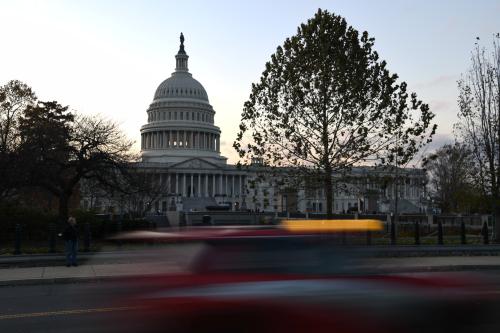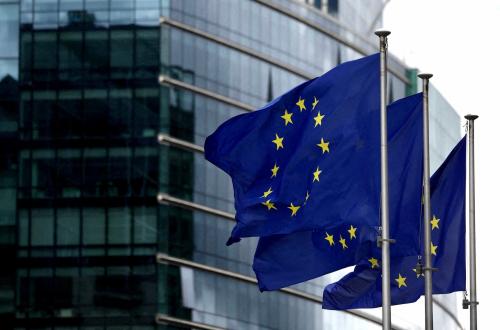This report was produced by the Brookings Center on Regulation and Markets.
Commercial privacy protection and competition law have long been jointly regulated by a single authority – the FTC – in the US. Though managed separately, both types of law have at their heart a desire to protect consumers. Antitrust law tries to ensure that consumers’ ability to choose between products is not restricted by anti-competitive acts. In the US, commercial privacy is protected through consumer protection law, which tries to ensure that consumers’ ability to choose between products is not restricted by misleading information.
In general, these consumer protection and antitrust missions have developed in parallel with little overlap in the actions of regulatory agencies. However, this article will argue that data privacy will be the first domain where this overlap is unavoidable and will cause tension going forward as authorities have to face hard trade offs between ensuring effective competition and ensuring privacy.
Usually when privacy concerns are discussed with reference to competition policy, the general argument is whether the effect of, for example, market share on consumer privacy is something that should be considered as part of competition policy. This has been a main thrust of the argument used by German regulators in their actions towards Facebook. German regulators challenged Facebook by claiming that because of Facebook’s large market share, consumers have no choice but to relinquish their privacy to be part of the social network. Therefore, their privacy effectively became a price they had to pay in the absence of a monetary price. As a result, the German competition authority has reduced the extent to which Facebook is able to share data across its various web properties.[1]
Some commentators in the US have advanced similar arguments, by saying that privacy is a sufficiently different part of product quality that the effect of the transaction on privacy should be considered independently in potential antitrust and merger review. This was an argument made by the non-profit Electronic Privacy Information Center (EPIC), for example, in its comments to the FTC on the acquisition of WhatsApp by Facebook.[2] However, then-FTC commissioner Maureen Ohlhausen rejected this viewpoint, arguing that the traditional focus of antitrust was sufficient.
By contrast, this paper will consider how privacy regulation itself, designed to help consumers, can raise competition concerns, and will also examine how government efforts to shape the extent of privacy consumers have from itself may also shape the competitive environment. Ultimately, we argue that there can be tradeoffs between promoting competition and protecting consumer privacy.
The authors did not receive financial support from any firm or person for this article or from any firm or person with a financial or political interest in this article. In her broader work, Tucker has received grants from multiple companies, institutes and associations including DARPA, Google, the MIT CryptoEconomics Lab, the National Science Foundation, National Institutes for Health, the Sloan Foundation, Tilburg Law and Economics Center, Time Warner, the Net Institute, WPP, the Marketing Science Institute, and the Computer & Communications Industry Association. Unrelated to this paper, she has also served as a consultant for ADT, CBS, Bausch and Lomb, Facebook, Microsoft, Lyft, Ripple, RTIC, Samsung, Verizon, ContextLogic, and Yahoo. Marthews is the elected National Chair of Restore The Fourth, a 501(c)(4) nonprofit that advocates against mass government surveillance; founder and coordinator of the Campaign for Digital Fourth Amendment Rights, a 501(c)(4) organization; and the founder and coordinator of Digital Fourth Amendment Research & Education, Inc., a 501(c)(3) nonprofit that seeks to foster research into the application of Fourth Amendment law to digital technologies.







